Immunogenetics: Unraveling the Genetic Molecular Tapestry of Adaptive Immunity
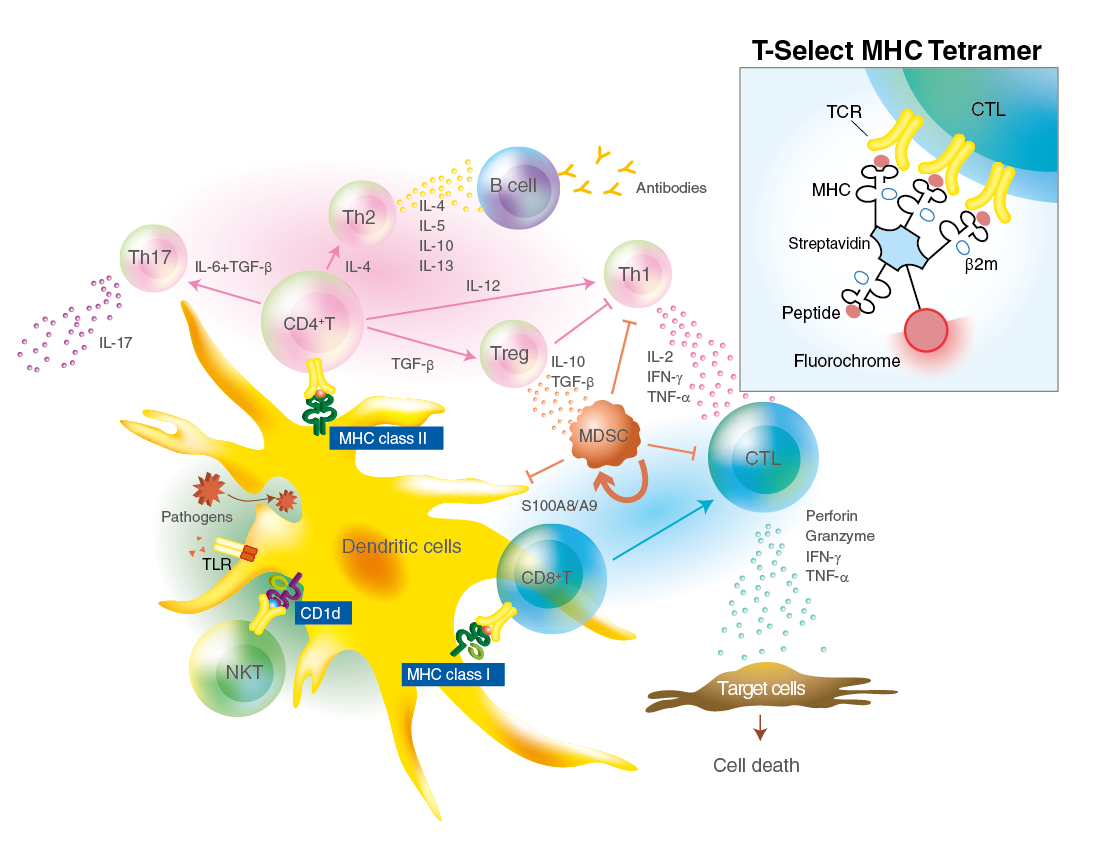
In the intricate landscape of the immune system, Immunogenetics emerges as a pivotal discipline delving into the genetic molecular intricacies governing adaptive immunity. At its core, the Major Histocompatibility Complex (MHC), also known as HLA in humans, takes center stage. This diverse set of genes orchestrates the expression of cell surface receptors on nucleated cells, shaping the adaptive immune response.
Immunogenetics scrutinizes the polymorphic nature of MHC genes, deciphering the genetic variations that underpin individualized immune responses to pathogens. The interplay between the peptide-MHC complex and T cell receptors (TCR) unfolds as a molecular ballet, choreographing the body's defenses against infections. The specificity embedded in this interaction, guided by the intricate genetic code, forms the crux of our ability to recognize and combat a myriad of pathogens.
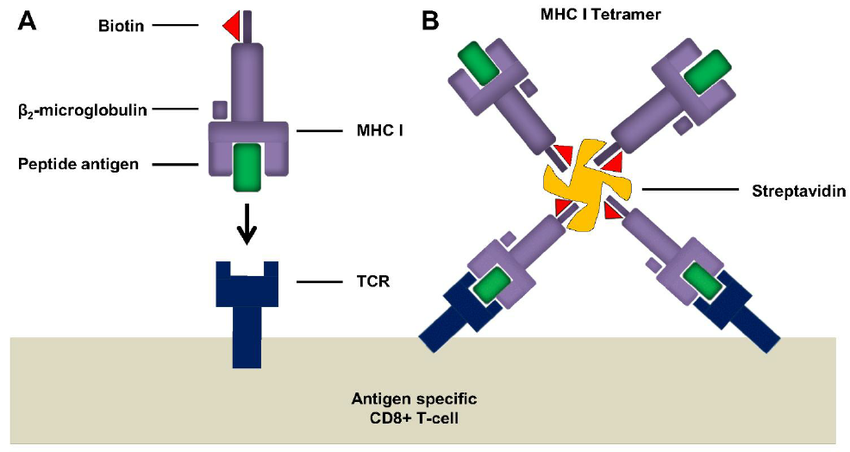
As research advances, the significance of Immunogenetics becomes increasingly evident. It not only unravels the genetic underpinnings of immune responses but also holds the key to unlocking novel therapeutic strategies. The development of MHC-Complex Tetramers, a sophisticated technique bridging genetic and molecular realms, provides a lens through which researchers can precisely study and manipulate immune responses at the molecular level. Immunogenetics, with its fusion of genetics and molecular biology, stands as a beacon illuminating the path toward a deeper understanding of adaptive immunity and groundbreaking advancements in personalized medicine and immunotherapy.
Advanced Immunological Services: Elevating Research with Custom MHC Complex Solutions
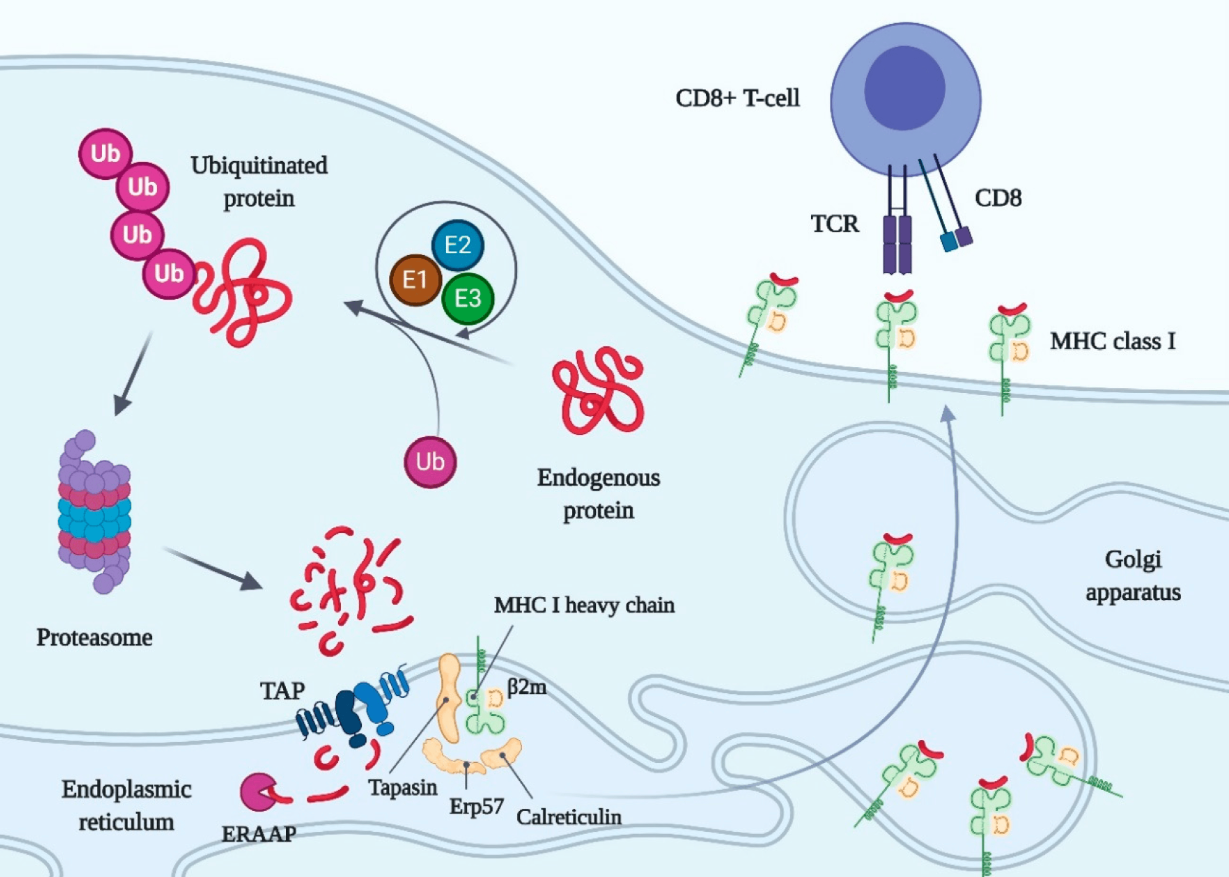
Embark on a journey into cutting-edge immunology with our bespoke MHC Complex Custom Service, designed to empower researchers with a suite of advanced features for dynamic investigations.
Eukaryotic Precision: Utilizing a sophisticated eukaryotic expression platform, our service guarantees a conformation aligned with eukaryotic standards. By steering clear of prokaryotic complexities, we ensure the integrity of MHC-peptide complexes, laying the foundation for reliable and biologically relevant outcomes.
Innovative Research Technology: Our professional MHC-peptide complex R&D technology platform serves as the backbone of this service, offering a robust foundation for precise and reliable exploration into the intricate dynamics of peptide-MHC interactions.
Diversity in MHC I and Antigens: Access an extensive array of MHC I molecules and antigens, enhancing the adaptability of our service to cater to diverse experimental designs. This inclusivity supports researchers in achieving specific and tailored research objectives.
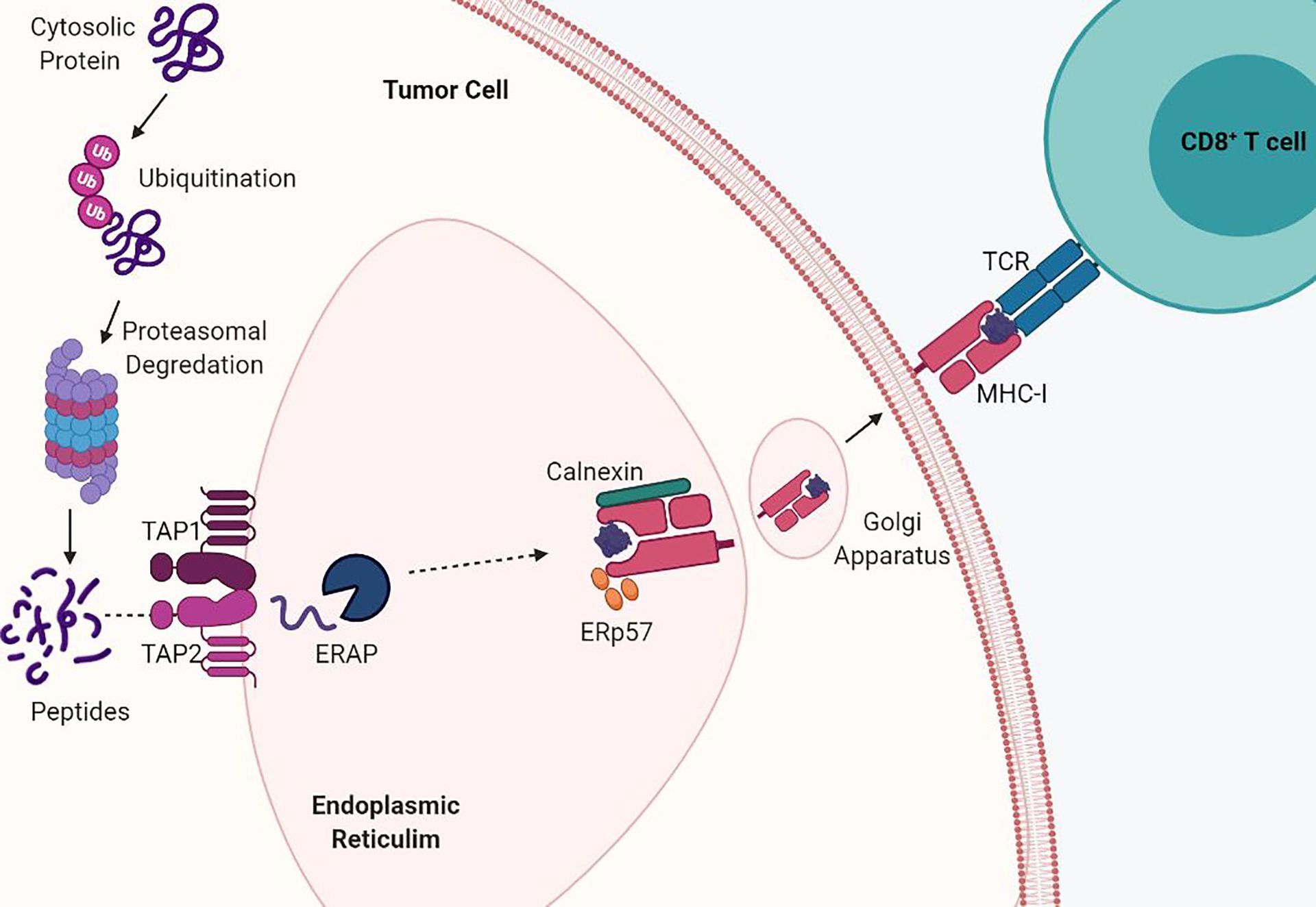
Rigorous Bioactivity Verification: Employing a mature bioactivity verification platform, incorporating techniques like Surface Plasmon Resonance (SPR), Enzyme-Linked Immunosorbent Assay (ELISA), Fluorescence-Activated Cell Sorting (FACS), and more, our service ensures the utmost reliability and functionality of MHC-peptide complexes.
Natural Conformation via Heterodimer Co-Expression: Stand out by achieving a more natural conformation in MHC-peptide complexes through the co-expression of heterodimers. This approach closely mirrors physiological conditions, elevating the biological relevance of research findings.
Versatile Forms and Optional Labeling: Tailor your experiments with a choice between monomer and tetramer forms of MHC complexes. Additionally, opt for labeling with FITC, PE, APC, or Biotin for enhanced versatility in detection methods.
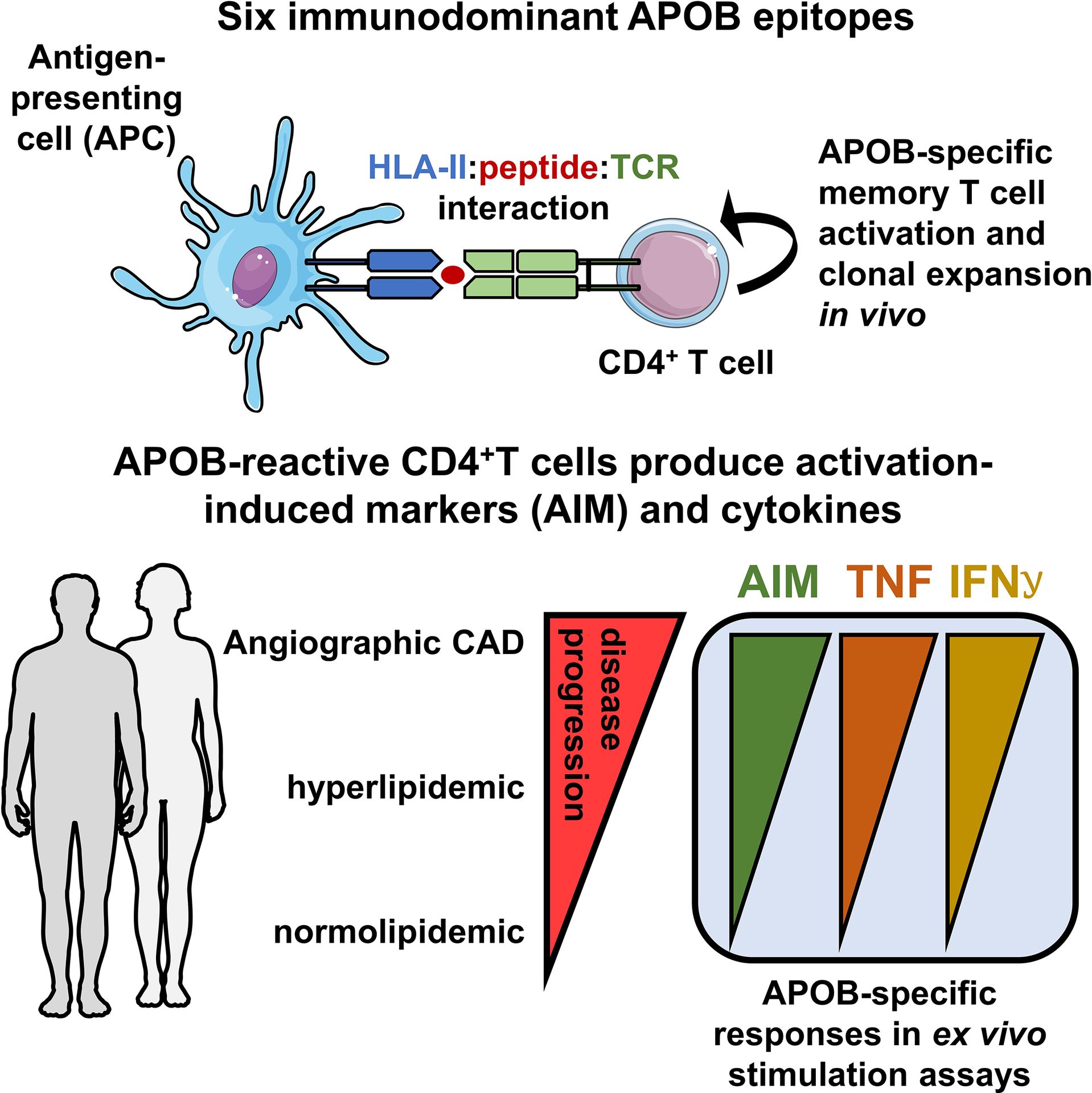
In essence, our Advanced Immunological Services provide a gateway to groundbreaking research, allowing investigators to delve deep into the intricacies of adaptive immunity with unparalleled precision and flexibility.
TCR and MHC-Peptide Complex: Key Players in Immune Recognition
Introduction:
The orchestration of our immune defense relies on the intricate dance between T cell receptors (TCRs) and the major histocompatibility complex (MHC)-peptide complex. These key players in immune recognition form the backbone of our adaptive immune response, ensuring our body's resilience against pathogens and abnormal cells.
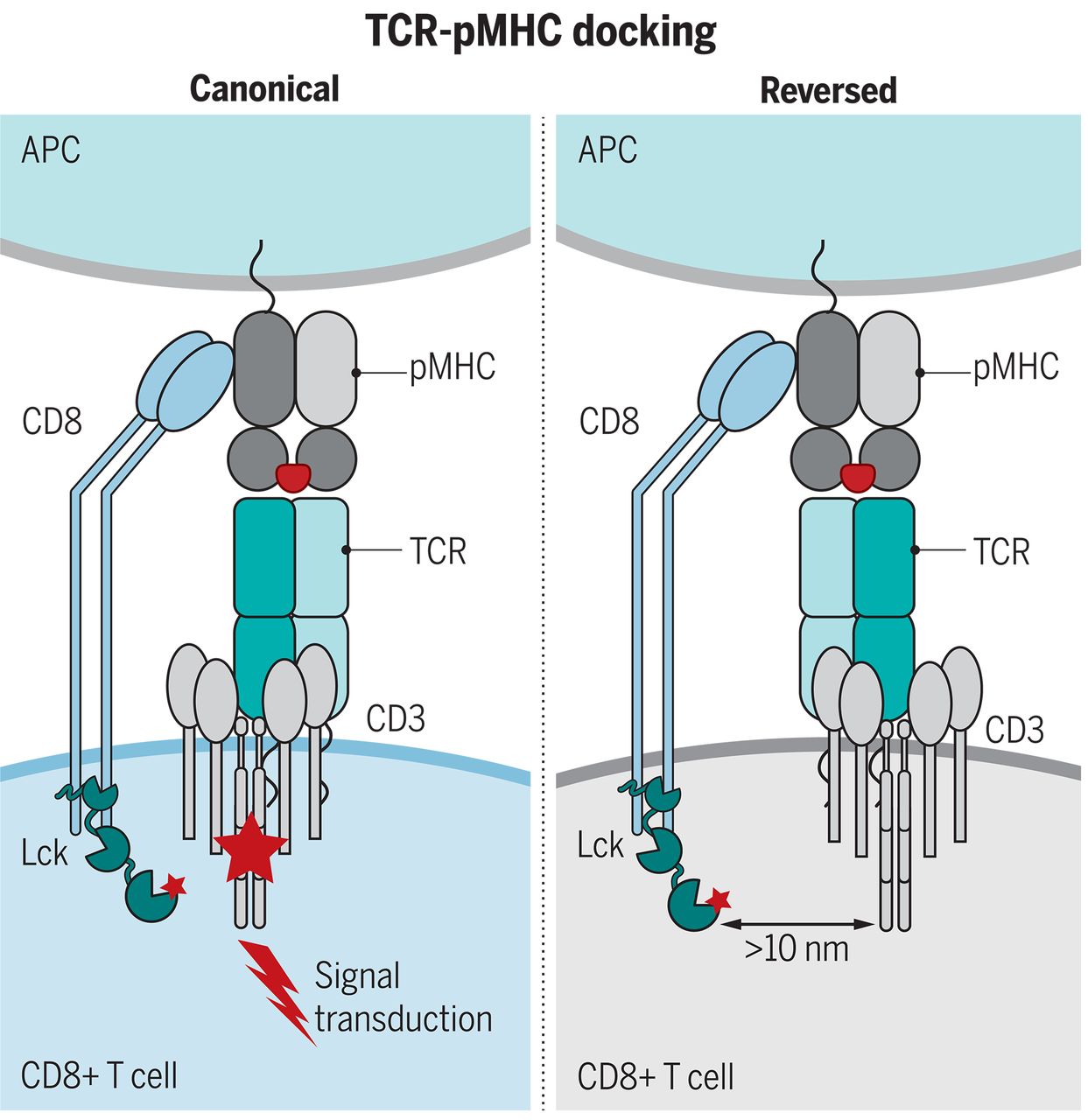
TCRs: Guardians on the Surface of T Cells
Visualize T cells as vigilant sentinels patrolling our bodies, armed with unique receptors on their surface known as TCRs. Each TCR is meticulously crafted to recognize and bind to a specific MHC-peptide complex, akin to a lock and key mechanism. This interaction serves as the trigger for a robust immune response.
MHC-Peptide Complex: Presenting the Antigen
The MHC, or major histocompatibility complex, acts as a molecular platform, capturing fragments of foreign proteins (antigens) and presenting them to the immune system. Different MHC molecules exist, each equipped with a groove designed to bind a specific peptide fragment. The marriage of MHC and the bound peptide forms the MHC-peptide complex, the focal point for TCR recognition.
Cytotoxic T Cells: Launching the Attack
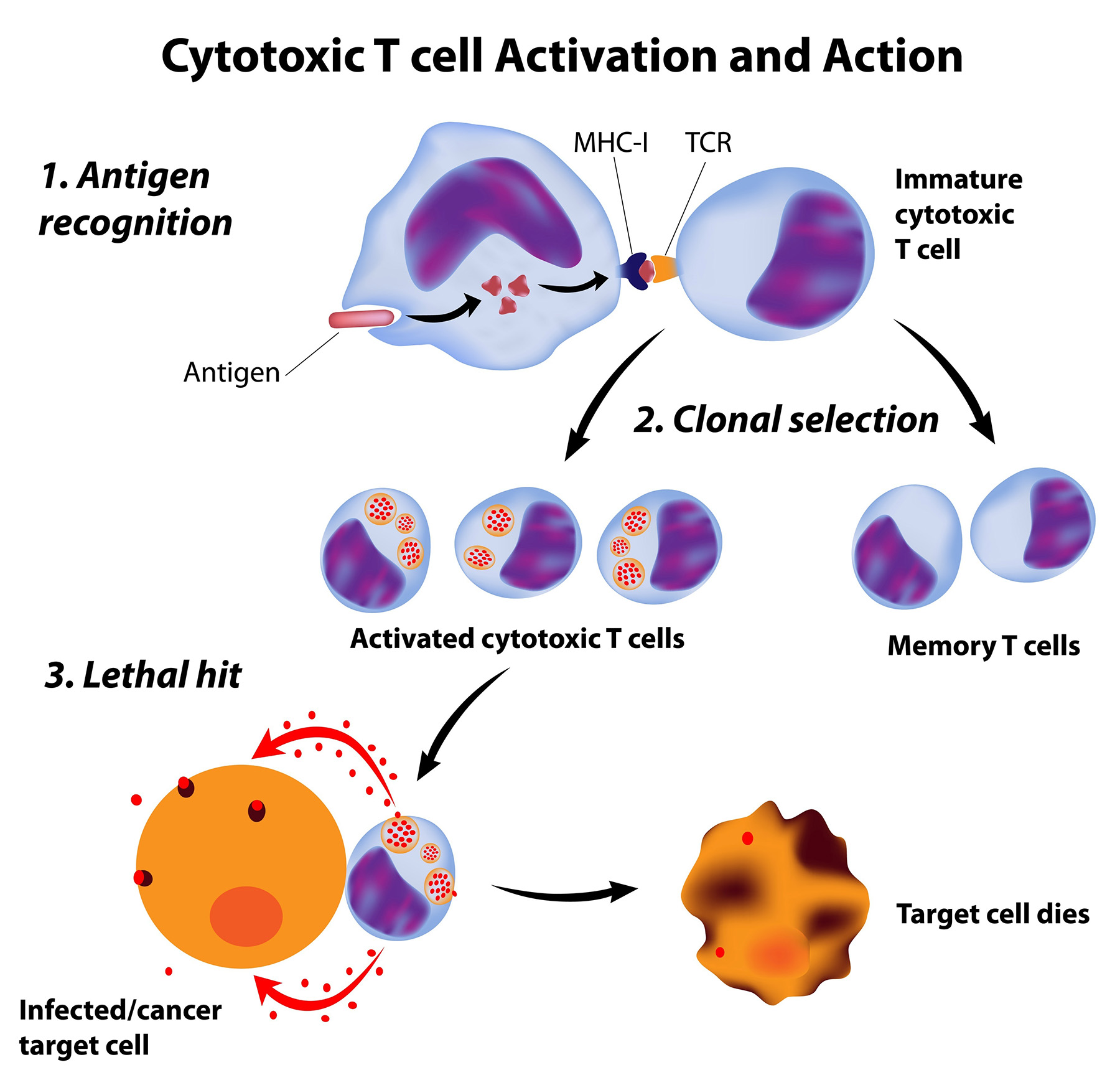
Among the T cell warriors, cytotoxic T lymphocytes (CTLs) stand out. These specialized cells carry TCRs that recognize endogenous MHC-class I molecules presenting antigenic peptides. This recognition, coupled with co-stimulatory signals, activates the CTLs, prompting them to proliferate and form epitope-specific clones.
Precise Targeting for Effective Elimination
Activated CTLs embark on a mission: to eliminate infected or cancerous cells. They achieve this by utilizing the mechanism of antigen recognition. TCRs on the CTLs bind to the MHC-peptide complex on the target cell surface, initiating the release of cytotoxic molecules that ultimately destroy the target.
The Significance of the TCR-MHC-Peptide Complex Interaction
This highly specific interplay between TCRs and the MHC-peptide complex forms the backbone of our adaptive immune response. It allows for precise targeting and elimination of threats, ensuring our body's continued defense against disease. Understanding this intricate interaction is crucial for developing effective immunotherapies and vaccines, paving the way for a healthier future.
Conclusion:
The dance between TCRs and the MHC-peptide complex is a cornerstone of the immune system's ability to distinguish "self" from "non-self" and mount effective responses against infections and aberrant cells. This dynamic interplay provides invaluable insights into the development of immunotherapies and vaccines, unlocking the potential of T cells for disease prevention and treatment.
Expanding the Narrative: Unveiling the Complexity of T Cell Recognition
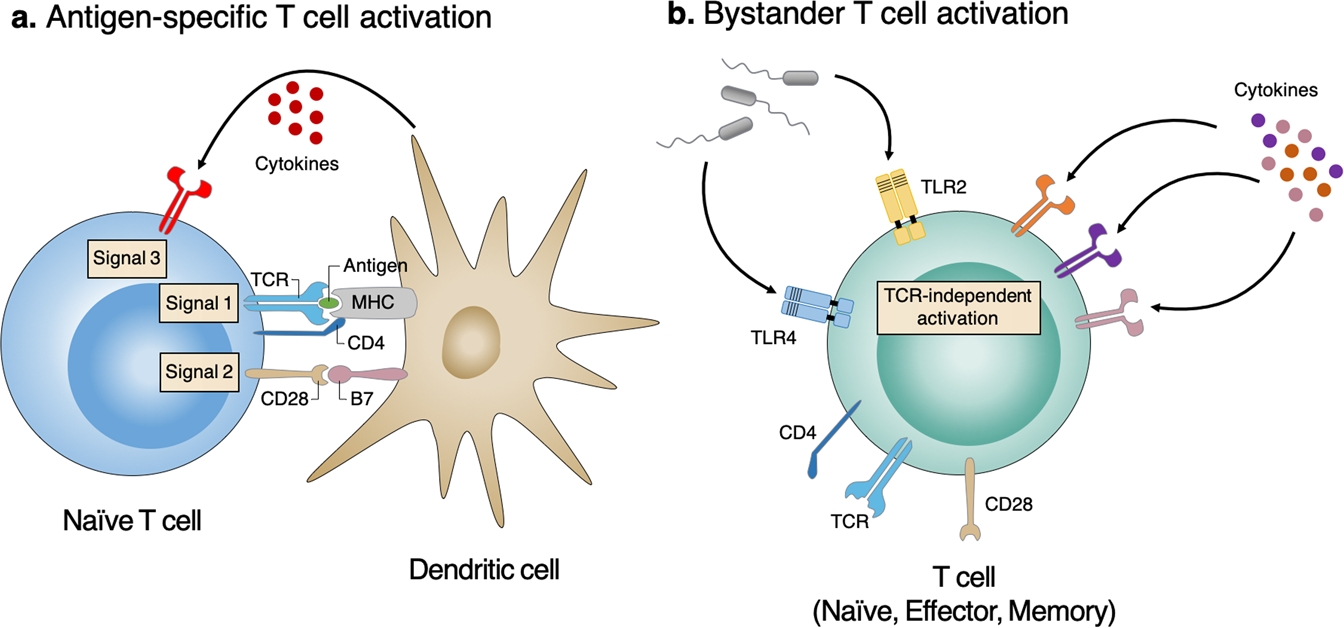
Co-stimulatory Signals: Enhancing T Cell Activation
The story doesn't end with TCR recognition. Once engaged with the MHC-peptide complex, T cells receive co-stimulatory signals. These signals act as molecular accelerators, propelling T cells into full activation mode. This critical step ensures that the immune response is not only initiated but also sustained and potent.
Fine-Tuning Immune Responses: Regulatory T Cells (Tregs)
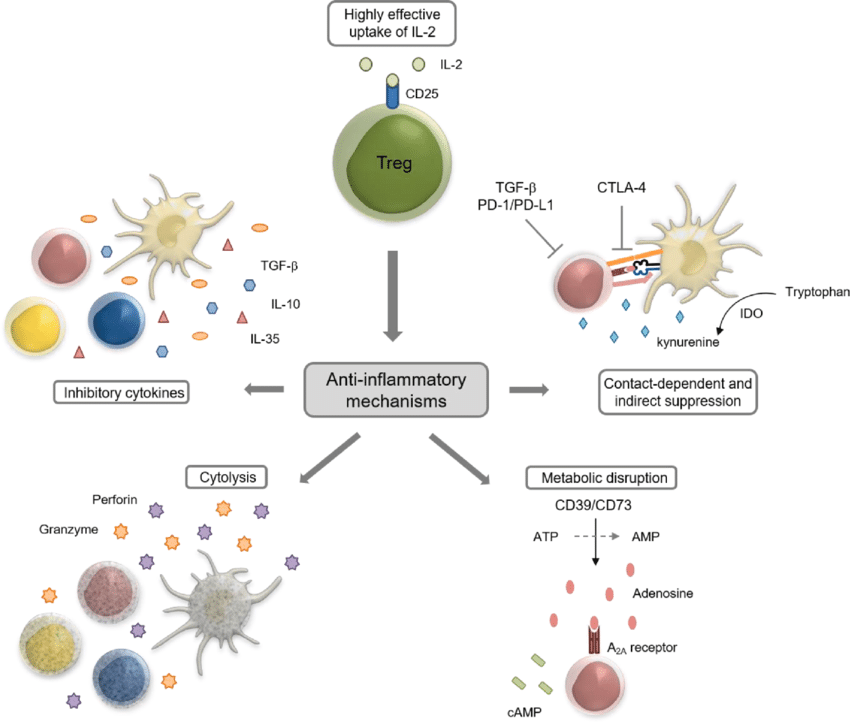
Amidst the fervor of immune response, regulatory T cells (Tregs) emerge as conductors of harmony. Expressing unique TCRs, Tregs modulate the immune system, preventing excessive responses that could lead to autoimmunity. Their role highlights the nuanced control required for maintaining immune balance.
Memory T Cells: The Immunological Archive
Some T cells, after encountering and successfully eliminating a threat, transform into memory T cells. Armed with the knowledge of past invaders, these cells stand ready for a quicker and more potent response upon re-exposure. This immunological memory is the basis for the long-lasting protection provided by vaccines.
Diversity in MHC and TCR: A Molecular Mosaic
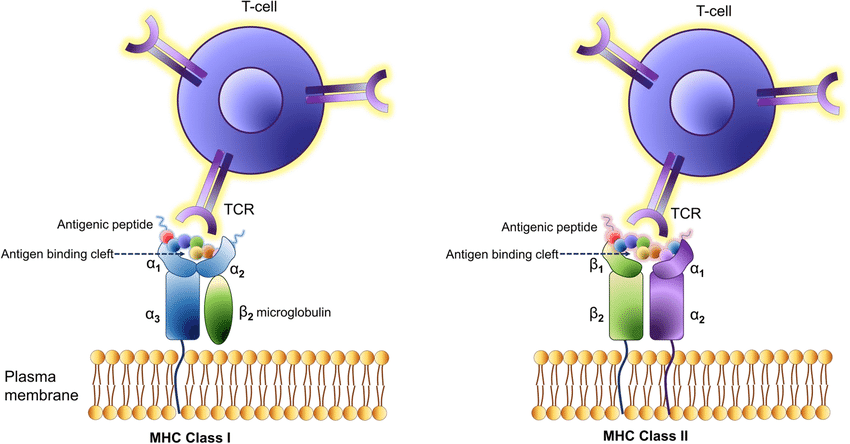
The diversity observed in MHC molecules and TCRs contributes to the adaptive nature of the immune system. A myriad of MHC molecules, each with its unique peptide presentation, and an extensive array of TCRs collectively provide the immune system with the versatility needed to recognize an immense range of potential threats.
Implications for Immunotherapy and Vaccines
Understanding the intricate details of TCR-MHC-peptide complex interactions has profound implications for medical advancements. Immunotherapies harness the power of T cells to combat diseases such as cancer, while vaccines leverage this knowledge to train the immune system effectively. Personalized medicine is on the horizon, tailoring treatments based on individual immune profiles.
Looking Ahead: Unraveling Further Mysteries
While we have made significant strides in unraveling the secrets of T cell recognition, much remains to be discovered. Ongoing research continues to delve into the complexities of TCR signaling, exploring new avenues for therapeutic interventions and enhancing our ability to manipulate the immune system for optimal health outcomes.
Conclusion:
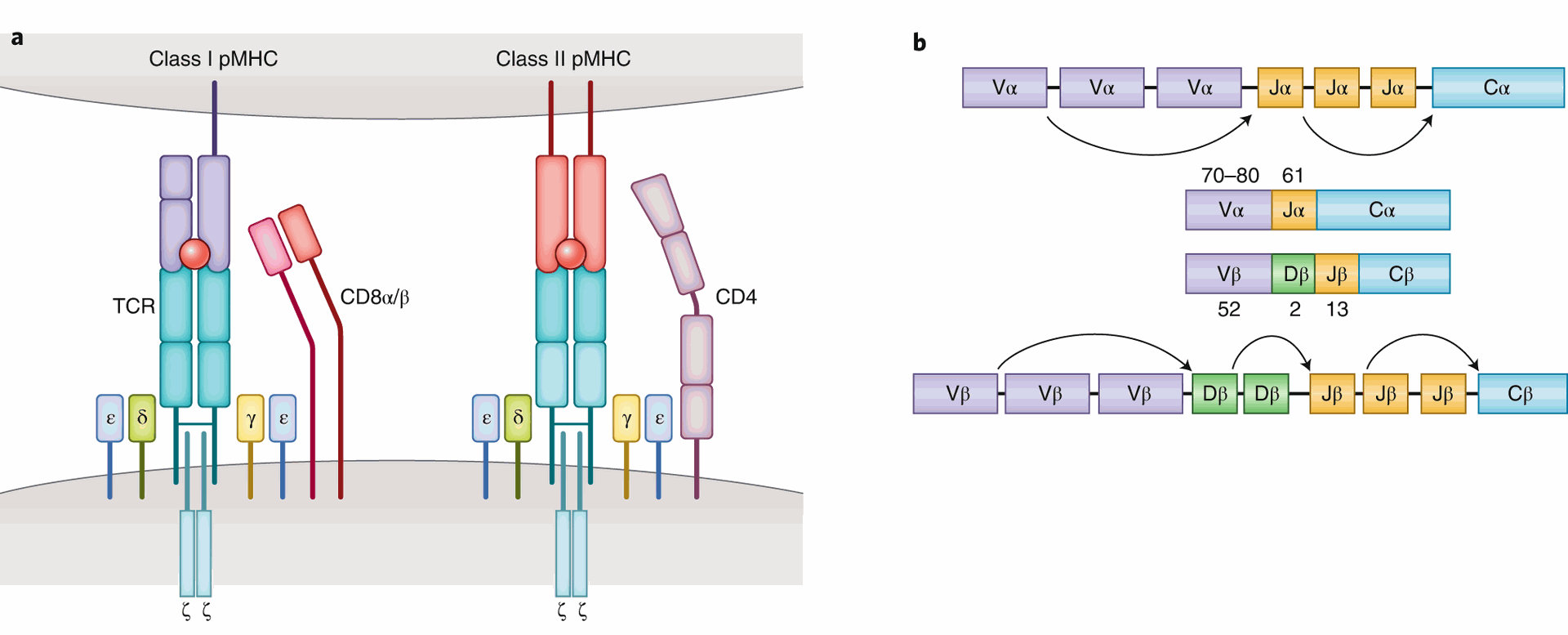
Navigating the Immunological Tapestry
The partnership between T cell receptors and the MHC-peptide complex is a multifaceted tale, revealing the sophistication of our immune defenses. As we navigate this immunological tapestry, each discovery brings us closer to unlocking the full potential of T cell-based therapies, forging a path toward a future where our immune system can be harnessed with precision and finesse for the benefit of human health.